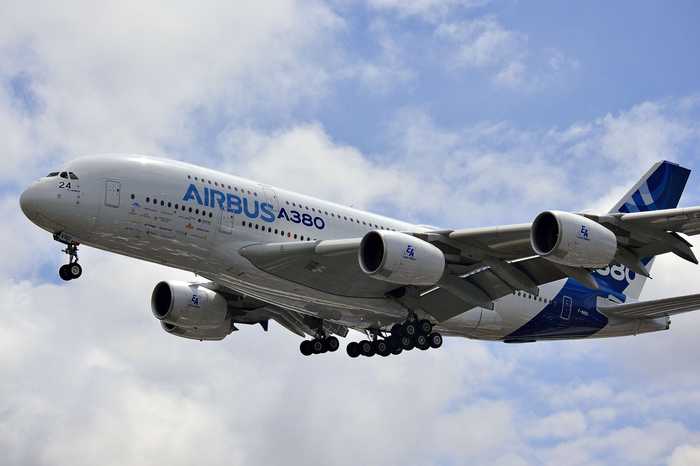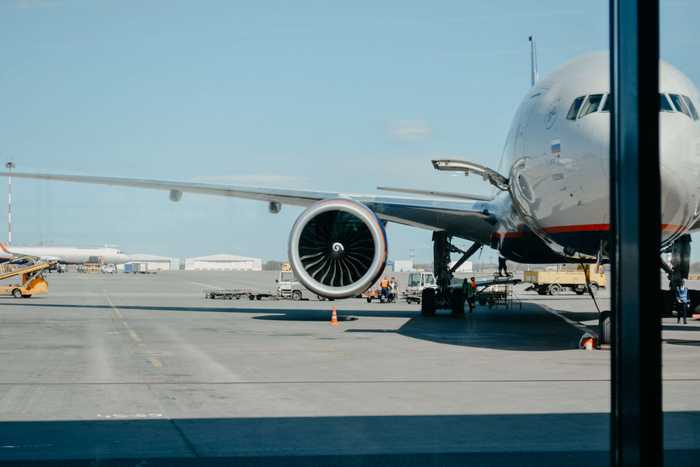Published 07:16 IST, February 1st 2024
Airline-friendly policies for a sustainable growth tops aviation sector's Budget wish list.
Advertisement
Ride to runway: In the run up to interim Union Budget 2024-25, airline companies, not just back home but globally, are optimistic that airline-friendly policies will drive India’s roadmap for sustainable growth of the aviation sector with help of big-bang deals. What could be the possible top 10 industry recommendations for the country’s policy makers? Republic Business takes a deep dive.

Republic
Advertisement
Insolvency cases and regulation
In October last year, the Ministry of Corporate Affairs (MCA) notified that transactions involving aircraft, plane engines, airframes and helicopters will be excluded from the Insolvency and Bankruptcy (IBC) code. This had come in the wake of Aviation Working Group (AWG), a UK-based entity that monitors leasing and financing laws, cutting India’s score on the compliance index to 2 from 3.5 out of 5. The MCA notification had come as a huge relief for Indian carriers, especially the newer ones.

Image credit: Unsplash
Advertisement
After turbulent times, the improved regulatory mechanism, such as speedy insolvency proceedings, India’s aviation sector has witnessed is being hailed globally. Sample this: In his address last year, during the curtain raiser event of Union Aviation Ministry’s annual event, “Wings India 2024”, Rémi Maillard, President & MD Airbus, India & South Asia, had expressed concern over the Indian aviation sector, with regard to regulatory hurdles. Without naming the embattled airline GoFirst, Maillard had said, “At the time when the Indian market is growing, we have a leading airline filing for insolvency,"
The Airbus India chief's summing up of airline industry last year, saying it has witnessed “depressing couple of weeks”, was one of the many anxious industry voices, back then.
Advertisement
Despondency to ray of hope
During COVID-19, amid a mass grounding of airlines globally, the sense of despondency prevailed in India’s aviation sector as well. The post-COVID recovery of the air travel sector world over has resulted in a ripple effect for an aspiring aviation hub such as India. The country today is encouraging global investors, enhancing flight connectivity and expanding its airport network. The Airbus India chief, seven months after being visibly irked with India’s regulatory mechanism, presently has renewed hopes for India’s aviation industry's 2024 trajectory.

Republic
Advertisement
Barely 10 days to go for the “Wings India 2024” event, in a pre-event message Airbus India chief Maillard said, “India is not only the fastest growing aviation market in the world, but also contributing strongly to the global industry. Fundamentals of the Indian economy are strong and all the axes of the aviation sector are bound to benefit from it. With the able support of the Ministry of Civil Aviation and its dynamic leadership, India has set out on the path to become a hub of international air travel." "This will open doors of new opportunities for airlines and ancillary businesses. We still have to cover a long distance before we develop deeper roots and stronger muscles,” the Airbus India chief added.
Capital raising for aircraft lessors
Center for Asia Pacific Aviation (CAPA), which provides market intelligence for the aviation and travel industry, in its latest annual outlook “What do we expect to see in Indian aviation in 2024?”, had recently underlined the need of capital raising for aircraft lessors. In its earlier global aviation outlook, CAPA highlighted the dominant trend of “lessors' takeover of the airline finance market”. It said maturity profiles of some lessors means that new issuances will need to be made at higher cost of capital, or sources of financing will need to be diversified.
Advertisement
As per CAPA analysis, leasing companies now control more than 50 per cent of the global commercial airline fleet. “Given the substantial lessor backlogs with OEMs, the growth of the lease-friendly low-cost carrier (LCC) and ultra low-cost carrier (ULCC) models and heightened levels of sale-and-leaseback activity, lessors are likely to continue to build their share of global fleets,” the CAPA report added.
Commenting on the scope to develop aircraft leasing practice in the country efficiently, prominent Pune-based aviation expert Dharyasheel Vandekar, told Republic Business that government must encourage leasing and financing of aircrafts at the International Financial Services Centre’s Gujarat International Finance Tech-city (Gift city).
“We are witnessing a strong demand for air travel and aircraft deliveries rebuilding. The industry is fundamentally better than it has been in years. Lessors are better positioned than ever before as travel continues to recover and there is a need to boost aviation activity at Gift city,” Vandekar said. Notably, the Gift city has seen registration of over 26 aircraft leasing companies in the past three years, with over 129 transactions. In February 2021, IFSCA issued a framework for aircraft leasing in India.
FDI for airport infra
Aviation stakeholders have labelled next one decade as the Indian aviation sector’s opportunity to be the industry leader. The policy boost to airport infrastructure, experts say, is a need of the hour. A case in point is the Singapore-based Changi Airports International, a Changi Airport Group company, one of the participants at the Union Aviation Ministry’s “Wings India, 2024” event this year.

Image credit: Unsplash
The Changi Airport Group, which recently got into a partnership with Uzbekistan Airports for developing Tashkent airport, being present in an industry event in India is a positive sign. Amid record aircraft order placement by various airline companies for India’s aviation market, airport infra build-up is an imminent requirement. Aviation infra companies such as Changi can make a difference, experts say. Besides, the need for more international airports to increase India’s international air travel penetration and the need to attract commercial aircraft manufacturers coupled substantiates Changi’s India interest. With policies to encourage use of Sustainable Aviation Fuel (SAF) part of India’s aviation sector’s wish list, foreign investment in any form is a welcome move.
Just 10 days ahead of Changi Group’s showcasing of technology and indulging in business networking exchange at Hyderabad, Eugene Gan, CEO, Changi Airports International says the Indian aviation sector is projected to become one of the largest air passenger markets globally by 2024. “Changi Airports International actively supports and contributes to this collaborative space. The government's roadmap towards achieving the 2047 vision also resonates with our dedication to driving and achieving both impactful and sustainable growth in aviation,” Gan said.
15:22 IST, January 9th 2024